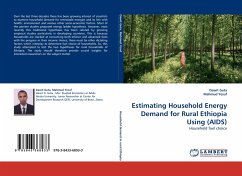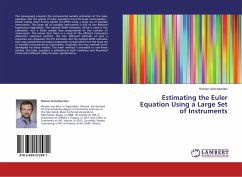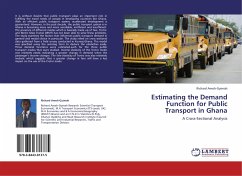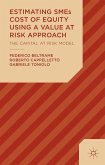Over the last three decades there has been growing interest of scientists to examine household demand for renewable energies and its link with health, environment and various other socio-economic factors. Most of the pioneer studies proposed energy ladder hypothesis. However, most recently this traditional hypothesis has been refuted by growing empirical studies particularly in developing countries. This is because households are stacked at consuming both inferior and advanced fuels with the progress in their income. Hence, there must be other dictating factors which interplay to determine fuel choice of households. So, this study attempted to test the two hypotheses for rural households of Ethiopia. The study should therefore provide crucial insights for interested researchers on the subject matter.
Bitte wählen Sie Ihr Anliegen aus.
Rechnungen
Retourenschein anfordern
Bestellstatus
Storno








